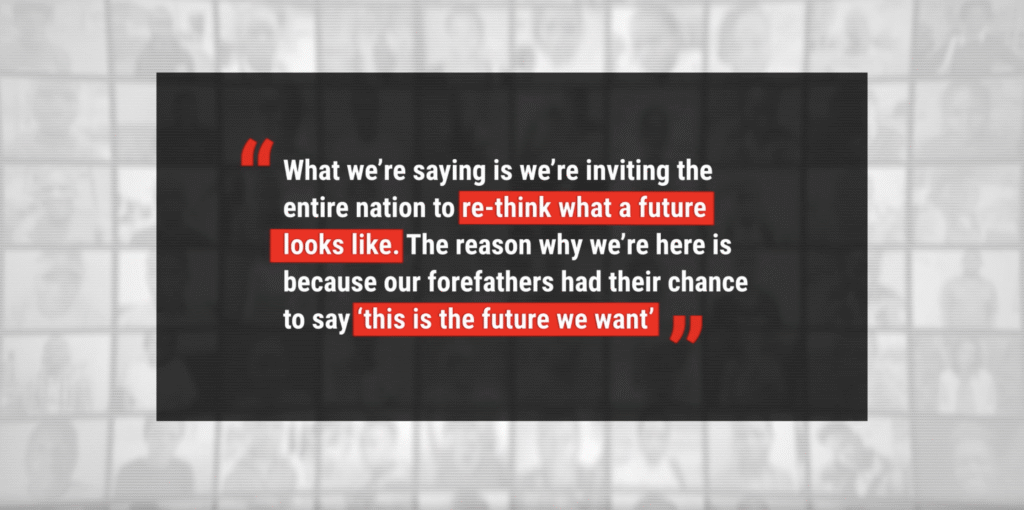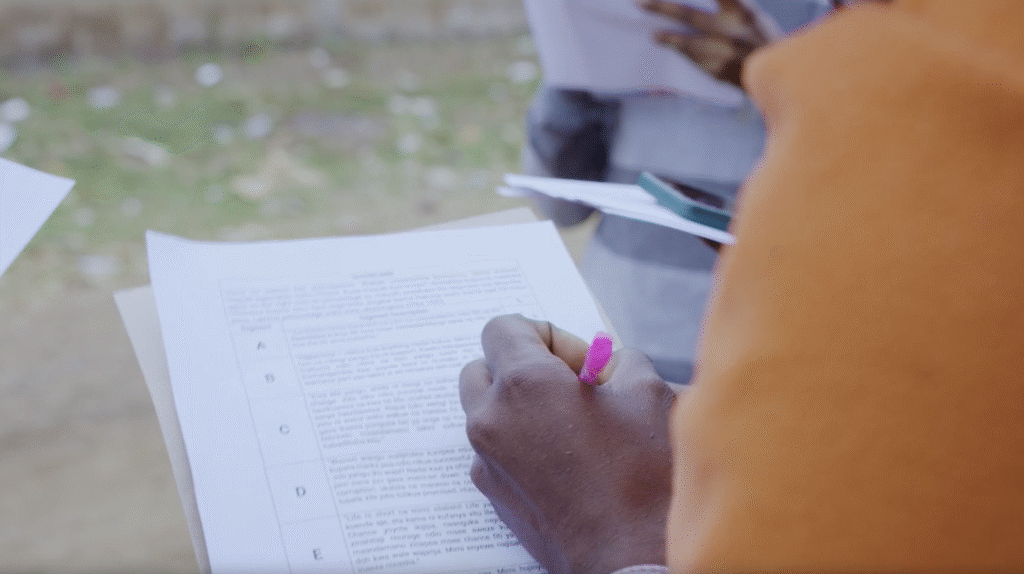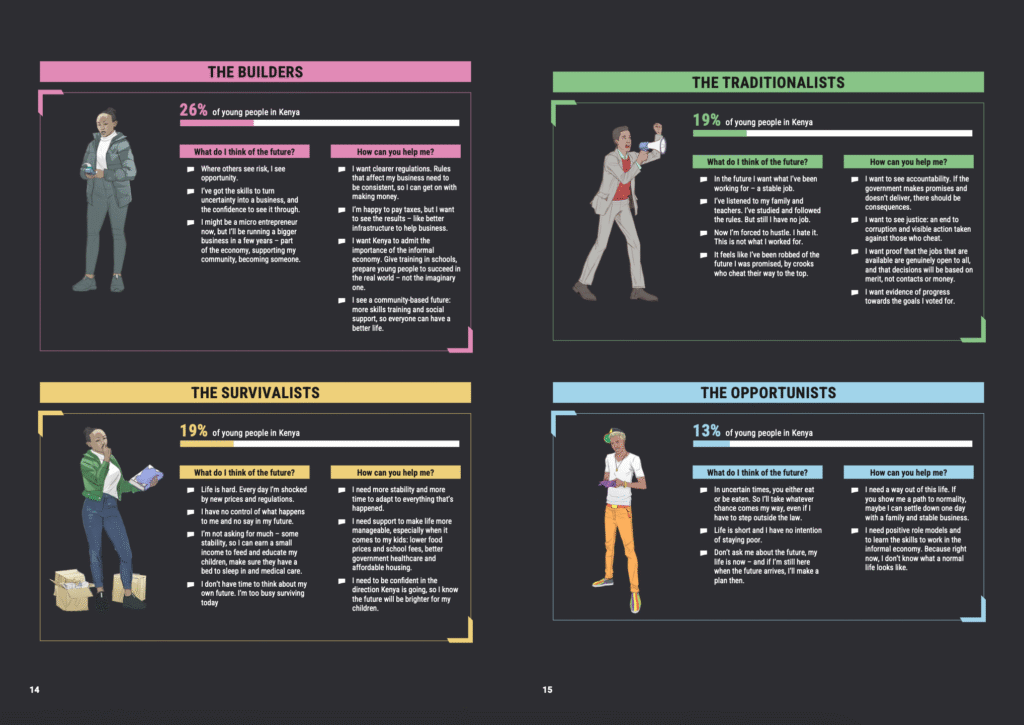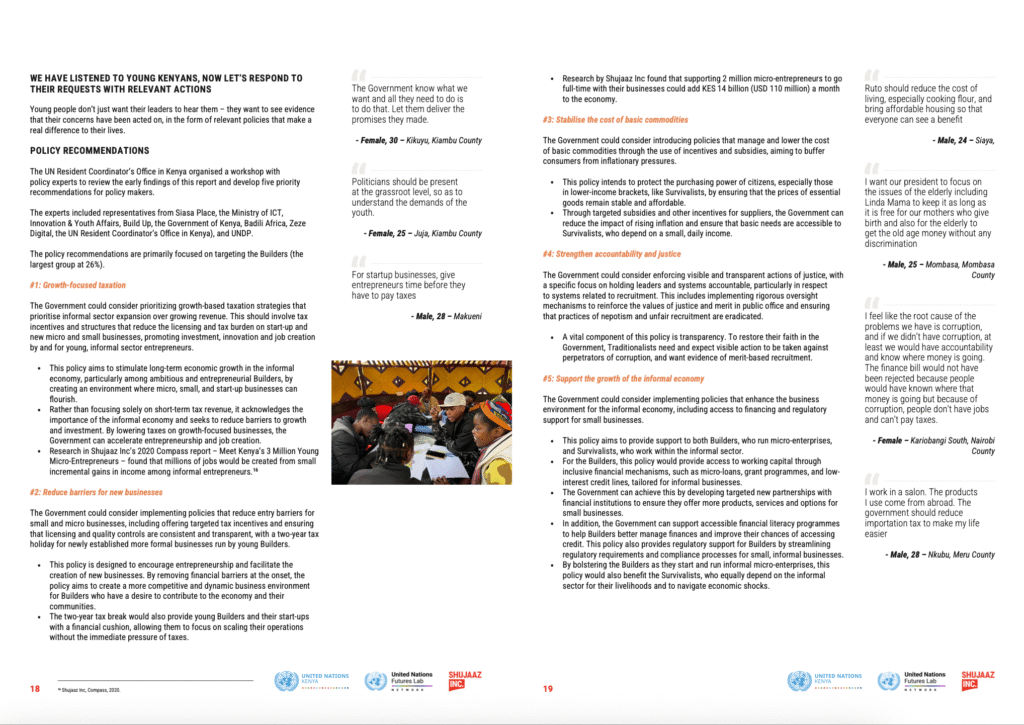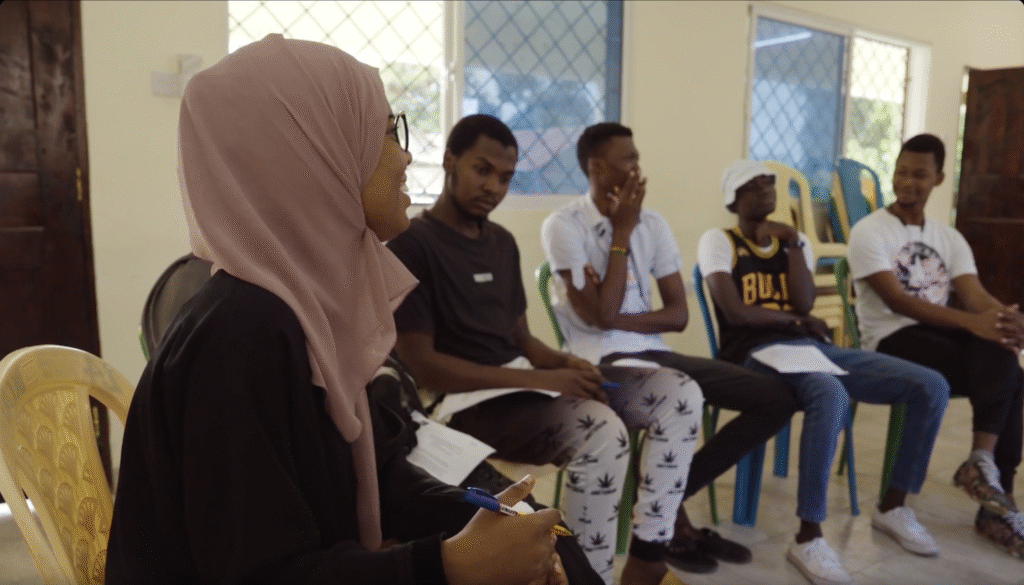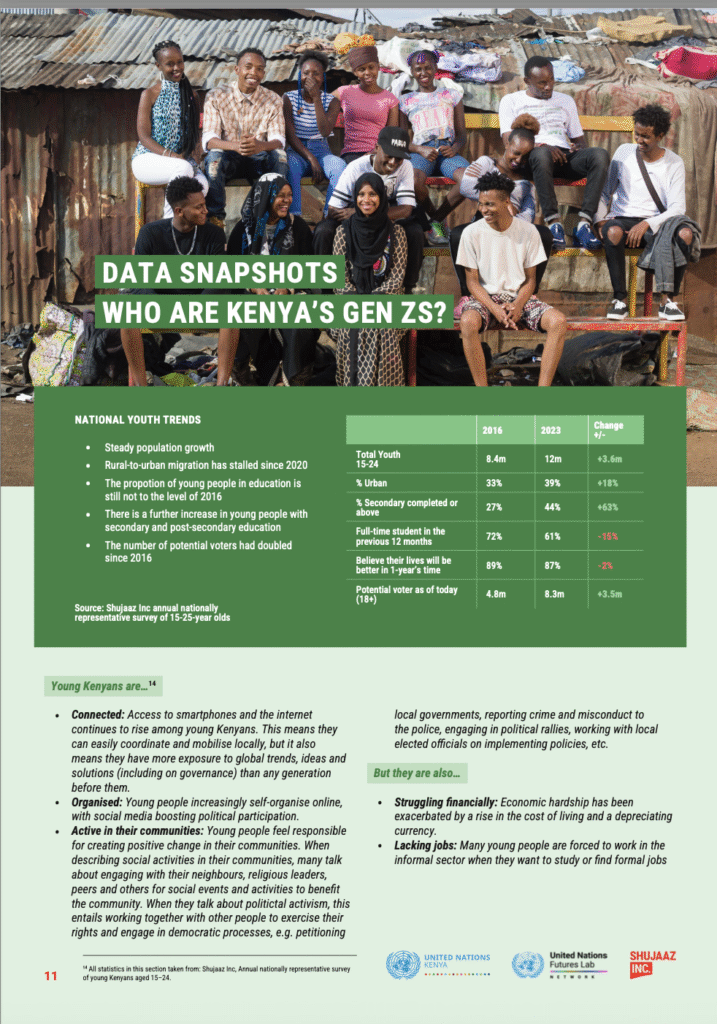[Report] Reclaiming Tomorrow: Rebuilding Young People’s Faith in the Future




This project was conducted in partnership between the UN Resident Coordinator’s Office in Kenya, the UN Futures Lab/Global Hub, and Shujaaz Inc., in the lead up to the UN Summit of the Future (held in September 2024). The project supports broader efforts by the UN in Kenya to promote long-term programming that enables young Kenyans to contribute to a strategic “vision of the future” for their country, as well as work by the UN Futures Lab/Global Hub to help incorporate futures thinking and strategic foresight into planning, policymaking and decision-making. The objective was to hear from Kenyan youth about their hopes, dreams, and aspirations for the future and gather insights for potential ways forward.
Key findings and highlights of the report
- Young Kenyans are more engaged than ever with how their country is governed. This is the result of a five-year journey of upheaval, beginning with the COVID-19 pandemic, moving through the 2022 General Election, and culminating in the Gen Z protests of 2024. These events assured young people of their power to use democratic processes for good – but also underscored their frustration at years of economic hardship and a perceived struggle to be heard.
- Young Kenyans are not all the same: they have diverse concerns and needs. To understand the challenges affecting young people, and their needs for the future, we must recognize they are not a homogenous group. This is the first step to engaging them in a meaningful way. There are critical differences in the circumstances of young Kenyans’ lives and in what they want from their Government. One-size-fits-all approaches to youth policy will not work.
- We mapped six groups of young Kenyans, categorized by differing attitudes to the future. Research for the report included a series of group activities and one-to-one conversations with more than 2,500 young people aged 18–29 in 34 of Kenya’s 47 counties. This process revealed that young Kenyans divide into six distinct groups, each with different expectations of the future, different priorities, and different needs from the Government.
- These six groups helped us to form five targeted policy recommendations. From among the six groups, the largest and most urgent demands are: A stronger focus on growth in the informal economy through the streamlining of regulations, taxes, and new opportunities that help Kenya’s young entrepreneurs to flourish and grow; concessions to those struggling to provide for families and dependents, for whom health, education and subsistence costs are overwhelming and improved public services are critical; and more visible public accountability and justice for those frustrated by unemployment and exacerbated by perceived unfairness and corruption.
- Bridged local youth voices and insights towards global impact. Findings were shared by Kenya during a high-level side-event at the UN Summit of the Future in September 2024 and informed discussions with national and county leaders.
Why it matters
This initiative traces how the differing realities faced by the current generation of young Kenyans have shaped their perspectives and their attitudes towards the future of Kenya. The report combines a snapshot of Gen Z youth trends and demographics in 2024, with an exploration of young Kenyans’ shifting hopes and aspirations for the future. It charts their changing relationship with democratic processes, their eagerness to help Kenya’s government shape different youth-friendly policies, and it sign-posts the most urgent reforms that will help young Kenyans reclaim tomorrow. We used this information to work with the Government, the UN and other key stakeholders to form five targeted policy recommendations:
- Growth-focused taxation: The Government could consider prioritizing growth-based taxation strategies that prioritize informal sector expansion over growing revenue through tax incentives, reducing licensing and tax burden, promoting investment, innovation and job creation by and for young informal entrepreneurs.
- Reduce barriers for new businesses: The Government could consider implementing policies that reduce entry barriers for small and micro businesses, including offering targeted tax incentives and ensuring that licensing and quality controls are consistent and transparent, with a two-year tax holiday for newly established more formal businesses run by young Builders.
- Stabilize the cost of basic commodities: The Government could consider introducing policies that manage and lower the cost of basic commodities through the use of incentives and subsidies, aiming to buffer consumers from inflationary pressures.
- Strengthen accountability and justice: The Government could consider enforcing visible and transparent actions of justice, with a specific focus on holding leaders and systems accountable, particularly in respect to systems related to recruitment, through oversight mechanisms.
- Support the growth of the informal economy: The Government could consider implementing policies that enhance the business environment for the informal economy, including access to financing and regulatory support for small businesses.
